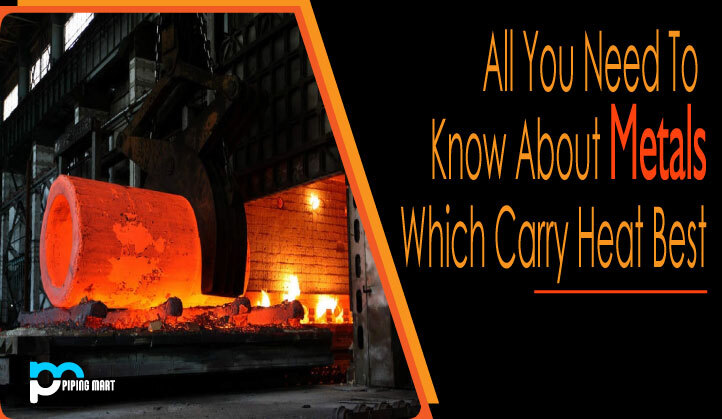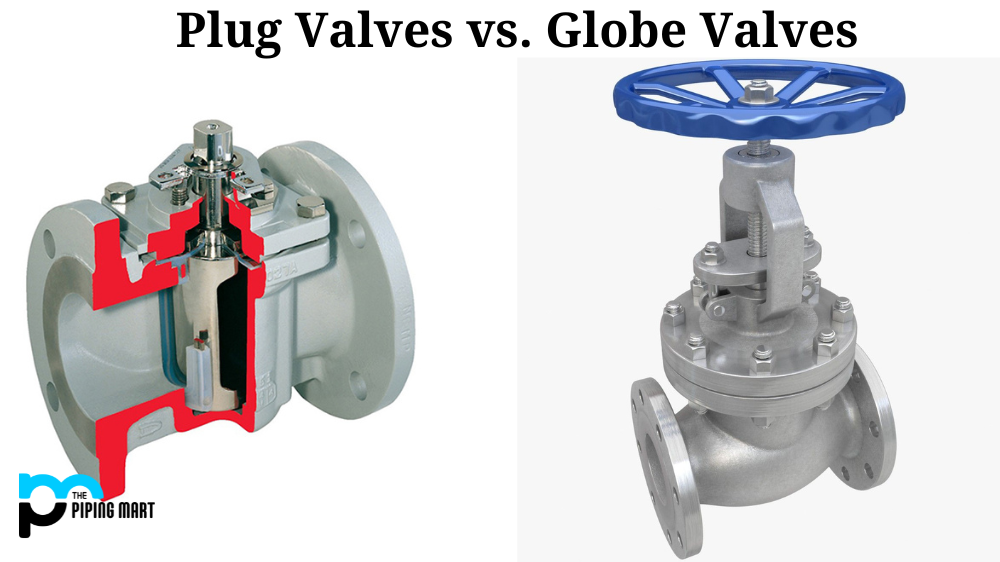Thermal conductivity is an indicator of a metal’s capacity to transmit heat. This property varies between metal types and is critical to note in applications with high operating temperatures.
Thermal conductivity in pure metals remains approximately constant as the temperature rises. Thermal conductivity in alloys, on the other hand, increases with temperature.
| Metal | Thermal Conductivity [BTU/(hr•ft⋅°F)] |
|---|---|
| Copper | 405 |
| Aluminum | 238 |
| Brass | 110 |
| Stainless Steel | 17 |
| Bronze | 15 |
| Iron | 73 |
The most commonly found metal with high thermal conductivity is copper and aluminium, whereas stainless steel and Bronze have low thermal conductivity. Heat conductivity is an essential factor when choosing metals for a particular use. Copper is best for heat exchangers, heater sinks and even the bottoms of a saucepan as it has a good heat conductor element. Stainless steel is a poor heat conductor; hence, it is used in areas where the temperature is higher, for instance, in Airplane Engines.
Metals which conducts high heat are generally applicable in Heat exchanger, heat and kitchenware.
Stainless Steel
Stainless steel is one of the alloys in metals with poor heat conductivity, which takes a long time to conduct heat than copper. This means that stainless steel products usually take much time to heat, and copper won’t. Other than this, stainless steel still has many other benefits to make it the best. Stainless steel is used at power plant units for Steam and Gas generation because of its poor heat conduction. Stainless steel cladding can withstand higher temperatures for longer, making buildings cool in the sun.
Aluminum
Aluminum has a bit lower thermal conductivity than copper; aluminium is lightweight, low-cost, and easy to operate. Aluminium is a good choice for various applications. Micro-electronics, which includes LED and lasers, has delicate heat sinks made of aluminium. The electronic heat moves passively or with forced airflow convection or a thermo-electric cooler from the chip to the aluminium and then to the air.
Copper
Copper has a high heat conduction and is much less expensive and more readily available than platinum, the perfect metal for conducting heat. Copper is suitable for solar water heaters, gas water heaters, automotive heat exchangers, refrigerators, air conditioners, and heat pumps because it is corrosion-resistant and biofouling resistant.
Other factors affecting heat conduction
In addition to thermal conductivity, other variables that influence the rate of heat flow must be considered when choosing suitable metals for heat conduction. For example, the initial temperature of the metal may significantly impact its heat transfer rate. The thermal conductivity of iron is 73 degrees Fahrenheit at room temperature, but it decreases to 35 degrees Fahrenheit at 1832 degrees Fahrenheit. The temperature differential around the metal, the metal’s weight, and the metal’s surface area are both factors.

Pipingmart is B2B portal specializes in industrial, metal and piping products. Also, share latest information and news related to products, materials and different types grades to help business dealing in this industry.




